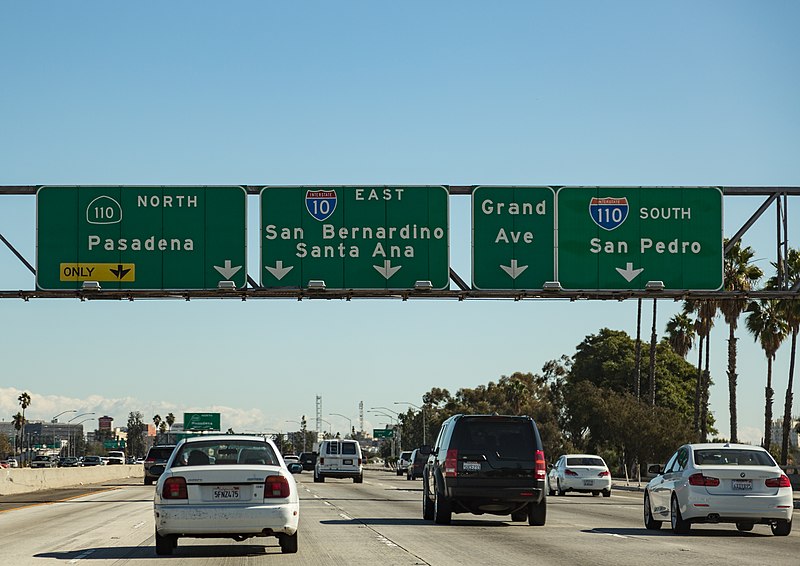California to halt sales of new gasoline-fueled cars
Interstate signs for 110 North (Pasadena) – 10 East (San Bernardino, Santa Ana), Grand Avenue, and 110 South (San Pedro) (Photo by Tony Webster)
September 12, 2022
On August 29th, The California Air Resources Board approved a bill that would see the sale of gasoline-fueled cars banned by the year 2035. This bill sets strict guidelines on what car manufacturers can and cannot sell, with stiff penalties awaiting any automakers who fail to comply.
These new regulations come just two years after Governor Gavin Newsom (D) issued an executive order with the same goal, stating that “This is the most impactful step our state can take to fight climate change.” With California’s transportation sector producing around 80 percent of smog-forming pollution and 95 percent of toxic diesel emissions in the state, (gov.ca.gov), this may be just what the state needs.
While the end goal is for all vehicles for sale to be zero-emission by the year 2035, California has set some short-term goals for automakers to work towards in the meantime. 35 percent of all vehicles must be hybrid or fuel cell and battery powered by the year 2026. This number jumps up to 68 percent in 2030, any manufacturers that are unable to meet these target numbers either need to purchase credits from other car manufacturers who have surpassed the set goals or face a $20,000 fine for each compliant vehicle they fail to produce.
With a staggering gap in price between electric and combustion vehicles, and at least 12 other states signaling that they may follow suit, it will certainly be interesting to see how these changes in America’s largest car market alter the automotive industry.



jaden mcgee • Sep 12, 2022 at 10:02 am
Very interesting
Nathan Santos • Sep 12, 2022 at 10:02 am
Very interesting.
Tomasz • Sep 12, 2022 at 9:59 am
Can’t wait to see what this does to the overall sales and success of car companies like Tesla compared to traditionally gasoline cars like Ford